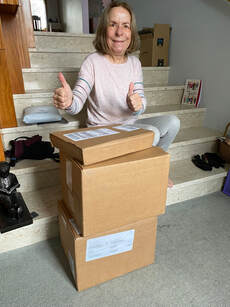 Hi! Let me start by saying that it was a huge challenge to launch my debut novel Spindrifts during the pandemic. So, I decided to take a slower pace for the first few months and use social media to bring attention to my novel, which is about climate change, inclusion, and hope. Let’s face it, these themes are important given wildfires, hurricanes, floods, tornadoes and other disasters. I have had some good success in promoting Spindrifts thanks to the amazing writing community involved with various social media platforms. In this Blog, I will let you know about a few of my promotion and marketing adventures in the last year, once it was safer to travel and be at events with my debut novel, Spindrifts! By the way, as you can see from the main page of my website, I now have a second novel, Spelldrifts, published. More about that later. My promotions journey started the day my books arrived. It was a thrilling morning and as you can see I was excited about this new phase of writing. 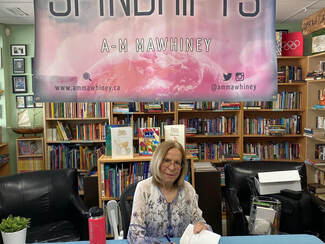 Then Rivendell Bookstore in Barrie, Ontario invited me to do a signing. It was a very hot day in June 2022. Such a thrill for me to have this new experience, meeting readers and telling them about my book. One young woman rushed in right at the end of the signing and we chatted about her desire to write a book. She bought a copy of Spindrifts, and that was the very nice ending to my first ever signing. 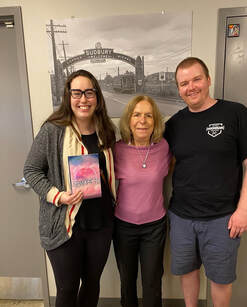 My favourite pharmacy is Seasons Pharmacy and Culinaria in Sudbury, Ontario, where I live. They host local community events and offered to have two signings and keep my book, along with others, for sale. This has been a very successful partnership and sales have been very good.  Old friends and new ones, along with some family members, kept Seasons busy both days because many of those interested in Spindrifts had never visited before. Seasons is not only a regular pharmacy but they also sell food from local farms and vendors in keeping with their philosophy of promoting holistic health.
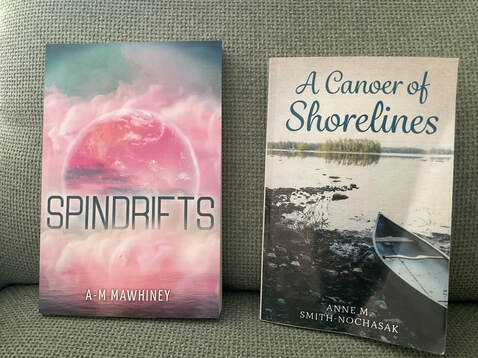 Anne M. Smith-Nochasak, a Nova Scotian author, and I decided we would partner on a creative collaboration where she would promote and market Spindrifts in the Maritimes and I would promote her wonderful book, A Canoer of Shorelines, in my travels. This has been a very good partnership that we have expanded to include our second novels. 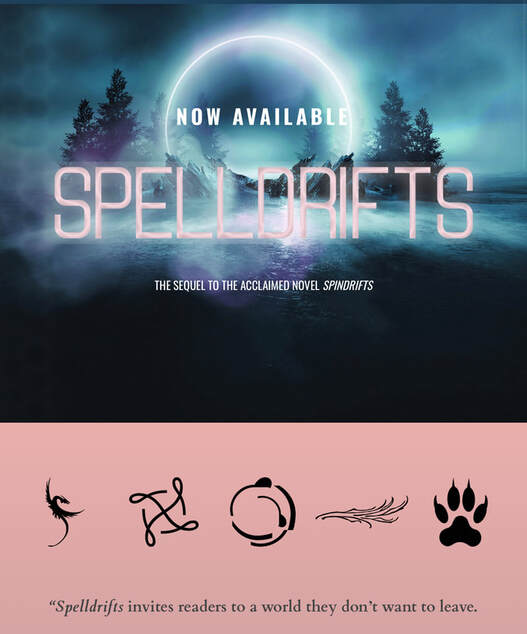 I hope you have enjoyed reading about some of my promotions adventures. I have enjoyed meeting new people and seeing some very excited readers who wanted to read Spindrifts. My adventures continue with the launching next week of my second book, Spelldrifts, the standalone sequel to Spindrifts. More about that soon.
0 Comments
On Monday, November 15, 2021 my debut novel, Spindrifts—a book that envisions life fifty years from now when climate change has mostly been addressed—was published. It was a very exciting day for me. And then I read a cousin’s post on Facebook. She lives in Victoria B.C. and was highlighting the catastrophic and unprecedented flooding that parts of B.C. were experiencing that same day. The juxtaposition of my book release and another horrific example of climate crisis—flooding following on the summer’s wildfires in that province—brings home in a startling and stark way to Canadians what other parts of our planet, and indeed First Nations and farmers on these lands have been sounding the alarm for many years: wildfires, droughts, food insecurity, contaminated water, and evacuations are caused by our actions. I cannot help wondering what it will finally take to motivate humans to make concrete changes at the individual, community, government, and international levels now, before it is too late. In Spindrifts people came together all over the planet to heal Earth after two international crises. It required changes in values from competition to collaboration, from hierarchy to team work, from conflict to a unified world indefatigably focused solely on resolving the climate emergency of our times now. I imagined a world fifty years from 2020 that overcame racism, understanding and expecting every person on earth had a contribution to make to heal our planet. Fifty years from now in an imagined world, decades of attention to the earth project reaped enormous gains in healing the planet, with more work still left to do. Just imagine what we all could accomplish together if we were to turn our attention to resolving climate change as our primary priority. Pause here to consider what shifts in our thinking and ways of living would follow from this. And think of what you can already contribute right now. COP26 Glasgow ended recently, but the proposed timelines and commitments are slow and insufficient in relation to our urgent realities: unified action is needed now, not five, ten, thirty years from now. Our priorities internationally need to shift, and our values and commitment to humanity’s survival mean moving away from our current ways and our value conflicts. Spindrifts is inspired by young climate strikers from all over the world. They understand the urgency of taking action and the responsibility of social and political leaders to lead the way. Youths point out that they will carry the heavy burden if we fail to take action now, and we all have a responsibility to them as well as future generations. Without immediate action we will continue to lurch from one catastrophe to another as if these are isolated incidents. This leads me to wonder: How prepared are you for an emergency evacuation? What’s in your go-bag? I have been asking myself lately what our country would be like now in 2021 had Europeans, at first contact in these lands now called Canada, seen themselves as anything other than a superior race? What if newcomers had adopted the ways of the original peoples instead of imposing Europeans ways?
There would have inevitably still been a process of working out relationships between the various groups about how to co-exist and on what basis resources should be shared— similar to current treaties, only fair, honoured, and updated regularly to keep up with changes over time. It would have been a relationship building process undertaken with the original peoples holding the power and authority. What would Canada be like by now, I wonder? Instead, in 1867 settlers sat together and worked out geographic boundaries for provinces and political responsibilities of the federation and the provinces, leaving out the voices and authority of original peoples from these lands. It is similar to be willing to have guests stay in your home and before long they have taken completely over, appropriating all rooms and land, establishing the rules and ways of living, pushing you into a small dank corner, of the unfinished basement and raiding your income and bank accounts. I am not the first to use this metaphor but it does highlight what has occurred. For reconciliation to occur in any meaningful way, it is my opinion as one settler, that we need first to consider what our lives would be like now had the original settlers listened and respected the ways of living, believing, and doing of those who were here for millennia before European contact. This should be the starting point for honest and respectful reconciliation, and yes we will have to change institutions, political, social, and economic relations and practices in order to create balance and fairness in sharing of power, resources, and opportunities. Of course such an idea cannot help to raise important questions for which I have no answers because those must rest first and foremost with First Nations. And the rest of us need to be willing to listen with open minds and honourable intent. Would it not be reasonable for First Nations, at least as a first step and as the original stewards of these lands, to regain their control over the lands currently called Crown and parklands, and resume leadership for all decisions of their lands? If the federal and provincial governments can respect each others’ jurisdictions, why do they, and we, not recognize and respect the jurisdiction and authority of each First Nation? Can we not finally begin to honour the treaty commitments to share land and resources fairly? Why don’t First Nations have a fair share in the wealth generated by resource extraction and indeed the authority to determine if, where, how and when such extraction might occur? Why can we not honour the intent of treaties? Why are settler-run companies unable to share the enormous profits from resource extraction on these lands when there is clearly more than enough wealth to share with original peoples? What if we could transform our ways into a fair distribution of resources and wealth so all benefit? What if this resulted in living more lightly on our planet with ways of living that restore balance for the benefit of all living creatures instead of the one percent? These questions informed the world I created in Spindrifts. But the ways of living in Spindrifts reflect only my ideas, which are inevitably flawed. But what if they provoke better ideas? When we talk about reconciliation what will that look like in fifty years? I believe reconciliation is a microcosm of what needs to happen to create fairness and equity in other relationships as well, and not just with humans. If we can’t even take steps towards real reconciliation with First Nations then what chance do we have to save our planet? Isn’t our planet in crisis because of our inability to live based on equality, fairness, and balance? I suspect many readers might be uncomfortable with the questions I am posing here. But I ask you, are you prepared to gamble the future of our planet by continuing to do things the way we do now, or will you instead dare to consider transformative changes that may save us all and our future generations? We can’t go back to the first European contact with First Nations but we can move in a respectful way forward embracing new ways of relating and living. The lives of Earth’s children may depend on it. Why i have a farm as my setting in Spindrifts I know next to nothing about farming except for what I observed and learned by visiting extended family farms in the summers when I was a young child. My great-grampa Nide was a farmer and several of his sons and their wives, my great-uncles and great aunts, were as well. I have many happy memories of visiting them and playing with cousins, running free all over the farm land and hunting for fresh eggs. Then one of my sisters married into a farming family and I observed and learned a bit more about farming. But mainly I developed a healthy respect for how much hard work goes into farming, and how the farming community always pulls together when someone needs help. Injured during harvest? Your neighbours will show up with their farm equipment and bring your crops in, in a matter of a day or two. Need a new roof on your barn? Things go better when farmers work together. We can all learn from farmers' neighbourly helping. And fifty years from now, in the time of Spindrifts, we will still need to eat, and will definitely still need farmers. And the challenges of climate change currently makes food security a key issue for our planet's survival. We will need to continue to count on farmers to feed us. Yet urban spread has resulted in the loss of much of our farmland in the last 100 years while our population has has increased significantly. On their website the Canadians for a Sustainable Society report that we have lost 65% of farmland in the Maritimes, Quebec, and Ontario alone in the last 100 years. If this trend continues partnered with arid summer conditions our food supply chain will inevitable become even more challenged. The idea of using greenhouses and hydroponic growing containers in my novel is not my idea. Close to where I live, where winters are harsh and snowfalls are meters deep, is a farm that provides year-round lettuce, kale, and other produce to communities throughout northern Ontario. I based this concept on the success of Truly Northern Farms, a family run business. Each one of us plays a key part in supporting local farms. In summers we can buy from local farmers, we can shop in small independently owned stores and frequent stores that bring in local products. When shopping in grocery stores, do you purchase locally, provincially, and nationally produced food? Do you ask your supermarkets to support local farmers? Supporting our local farmers is an investment in food security, and the food is also fresher and healthier for us. Just something to think about the next time you go shopping. I know next to nothing about farming except for what I observed and learned by visiting extended family farms in the summers when I was a young child. My great-Grampa Nide was a farmer and his sons, my great-uncles and their wives, were as well. I have many happy memories of visiting them and playing with cousins, running free all over the farm and hunting for fresh eggs.
|
Details
AuthorWelcome to the blog of A-M Mawhiney. I am the author of Spindrifts - A futuristic fantasy to inspire all who are interested in changing the world and Spelldrifts - Where magic meets destiny, both now available to order from most major online retailers here. Archives
October 2023
Categories |
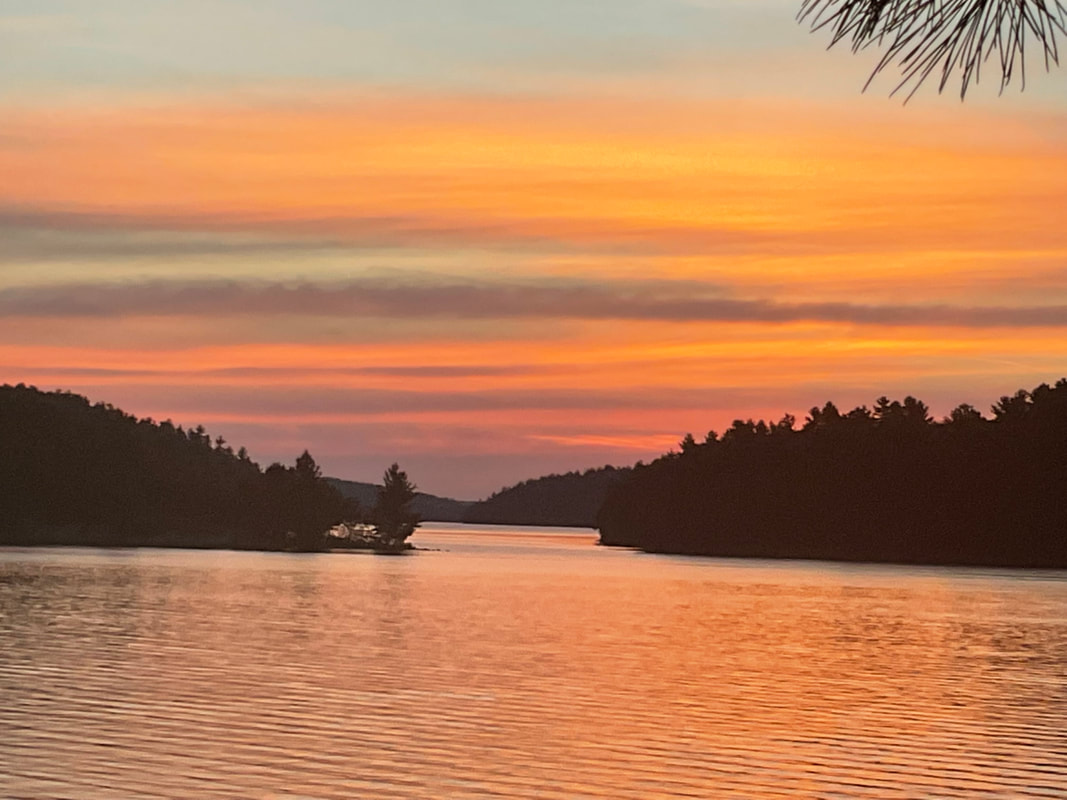
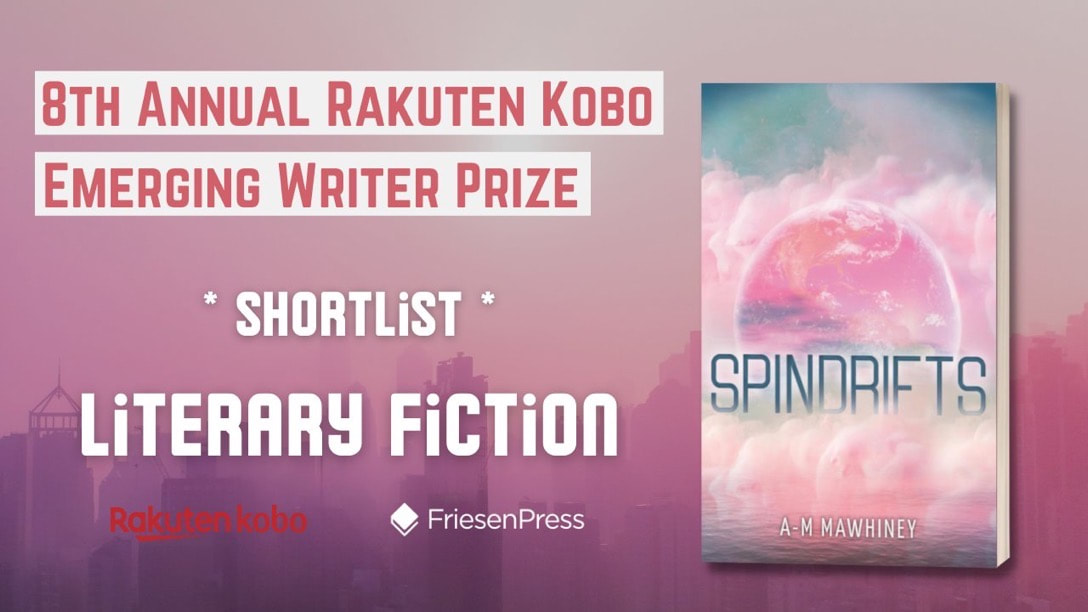

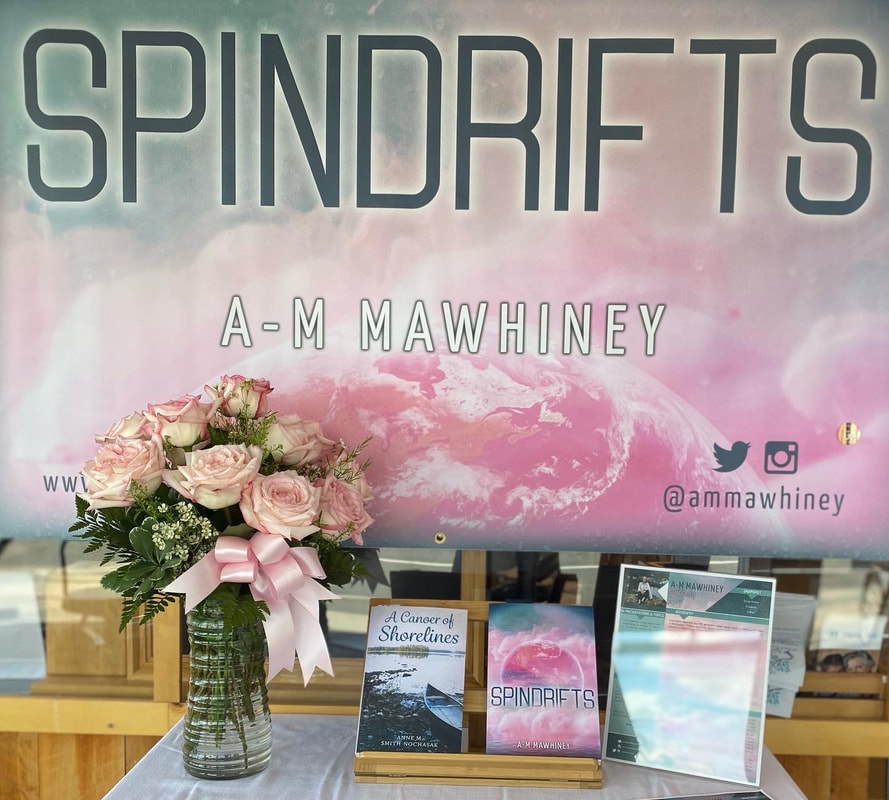
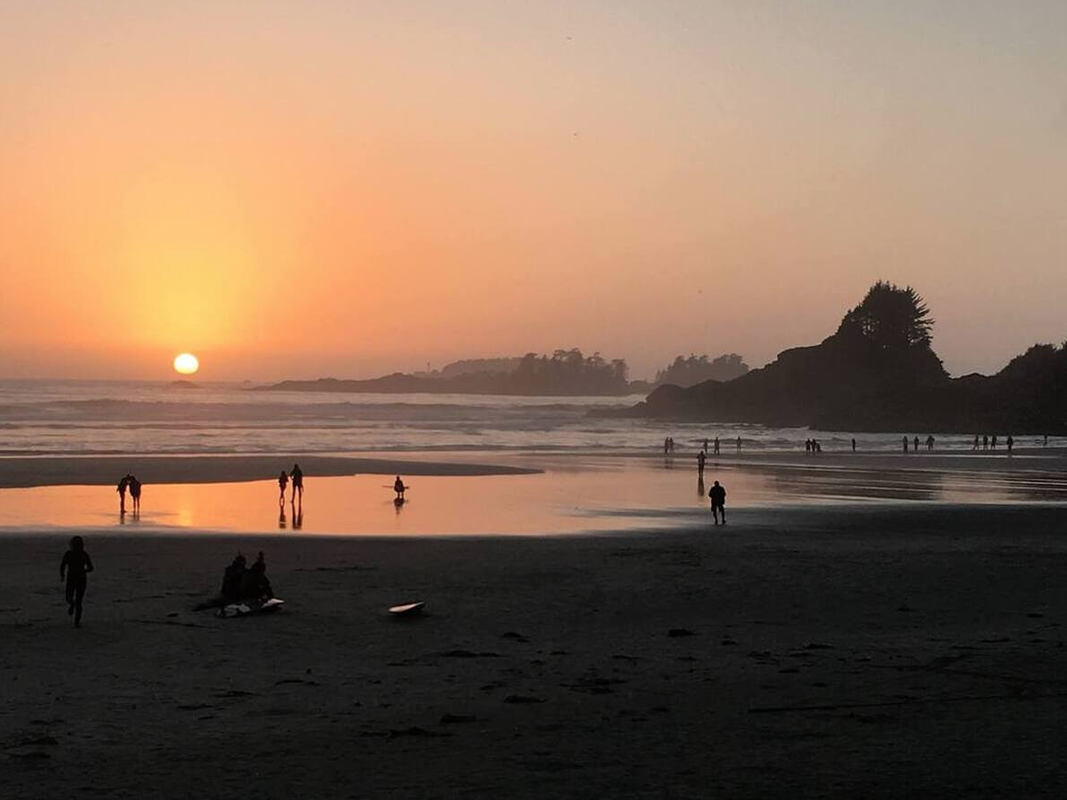
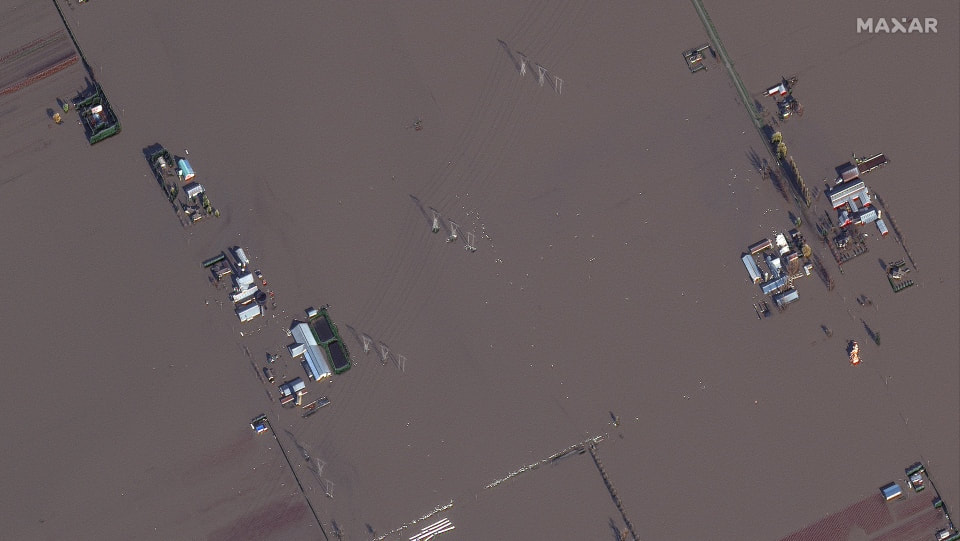
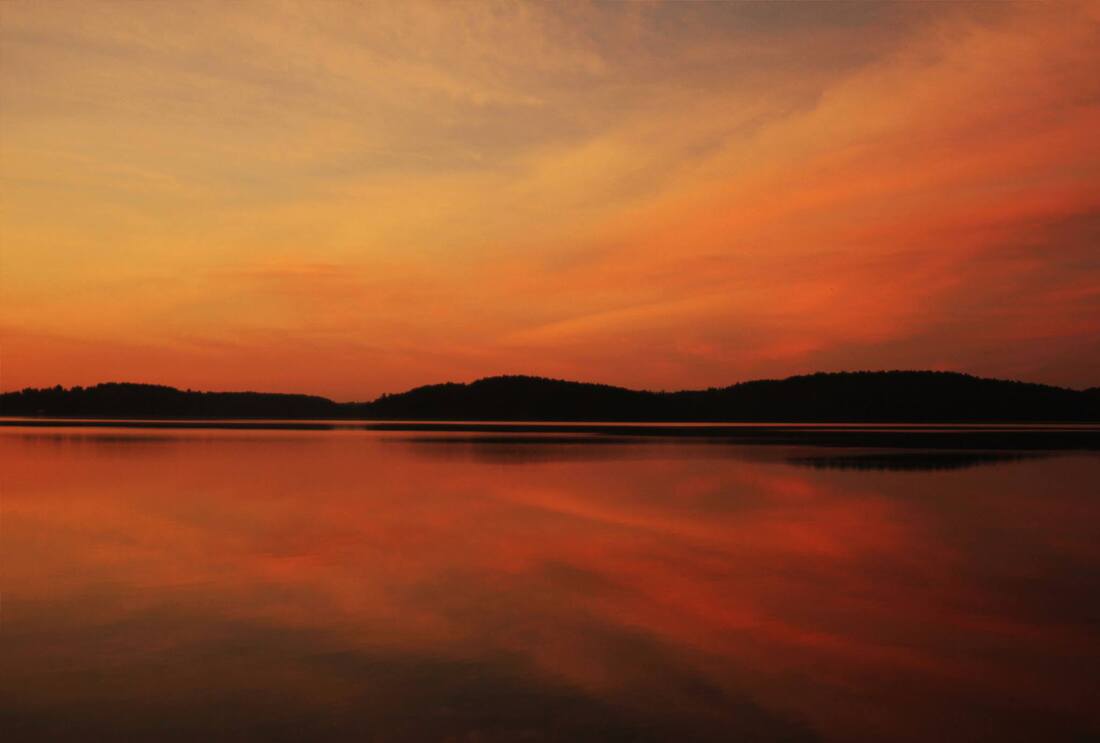
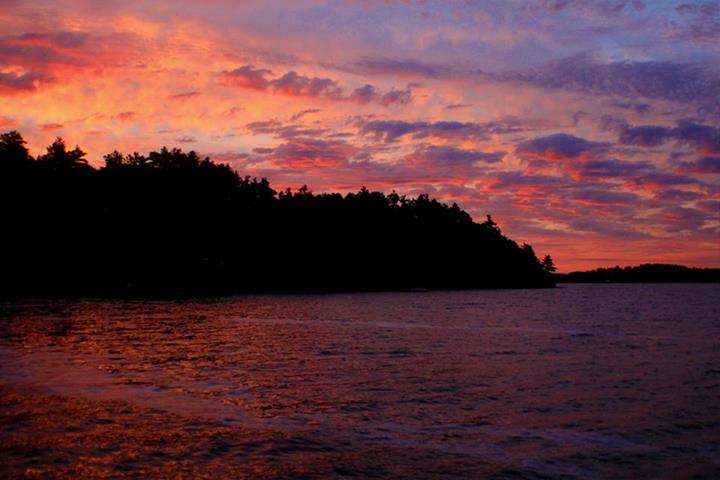
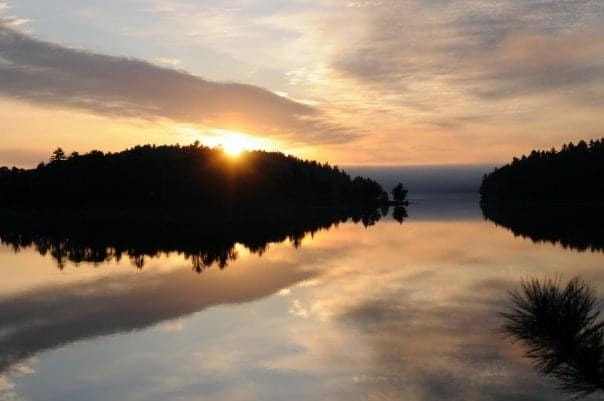
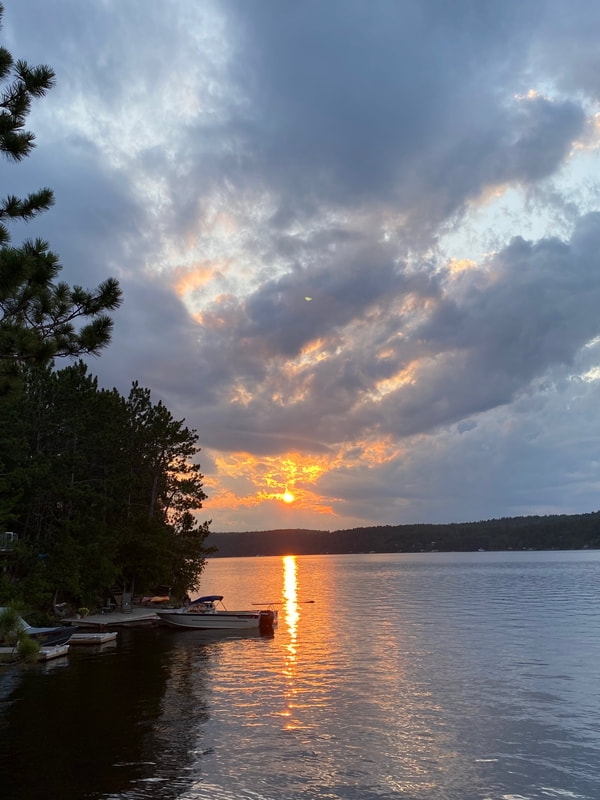
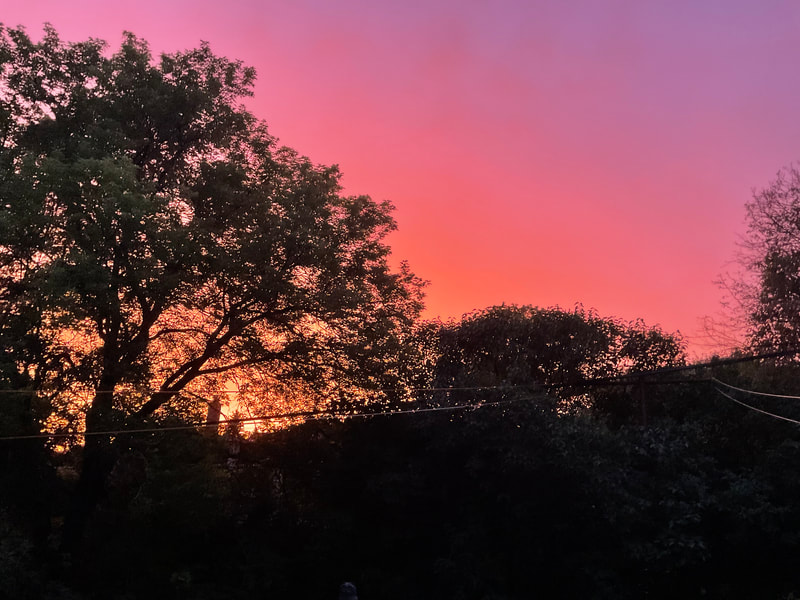
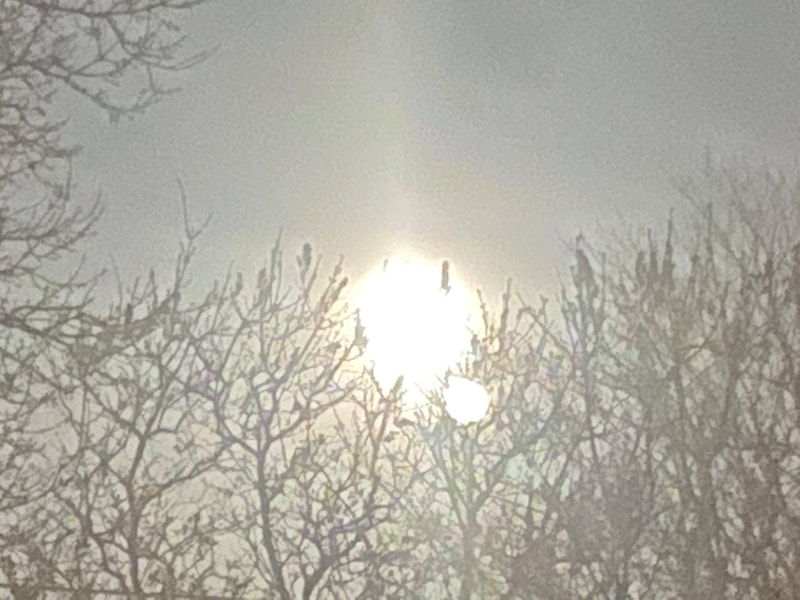

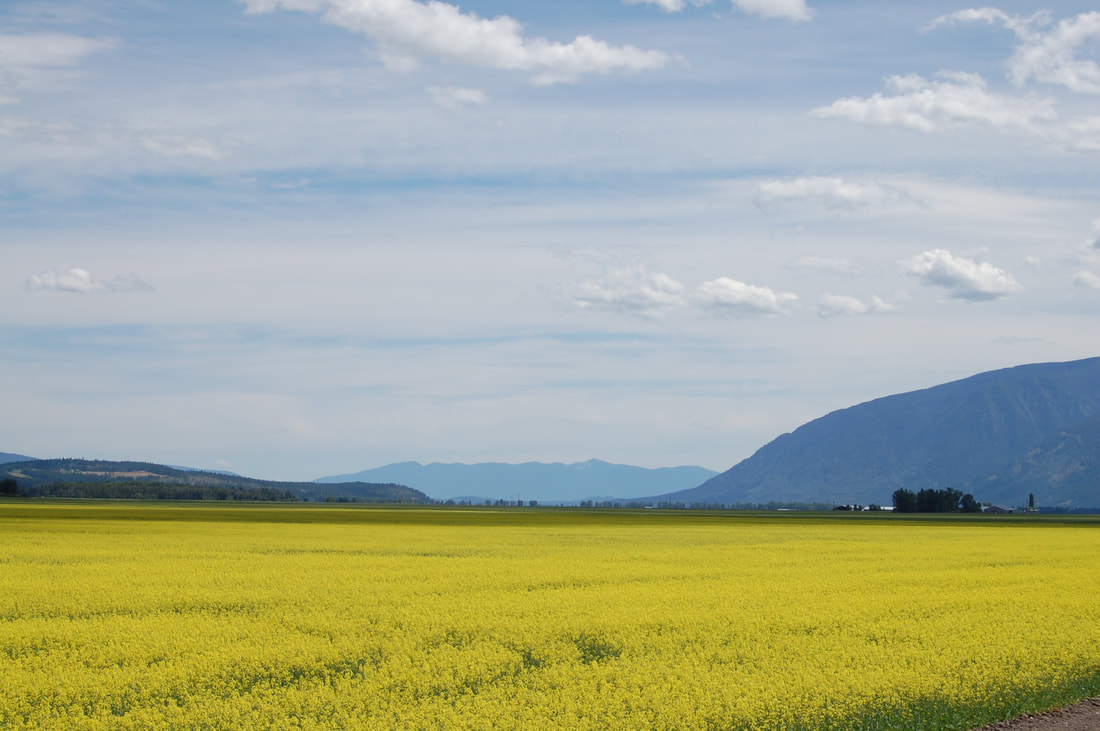
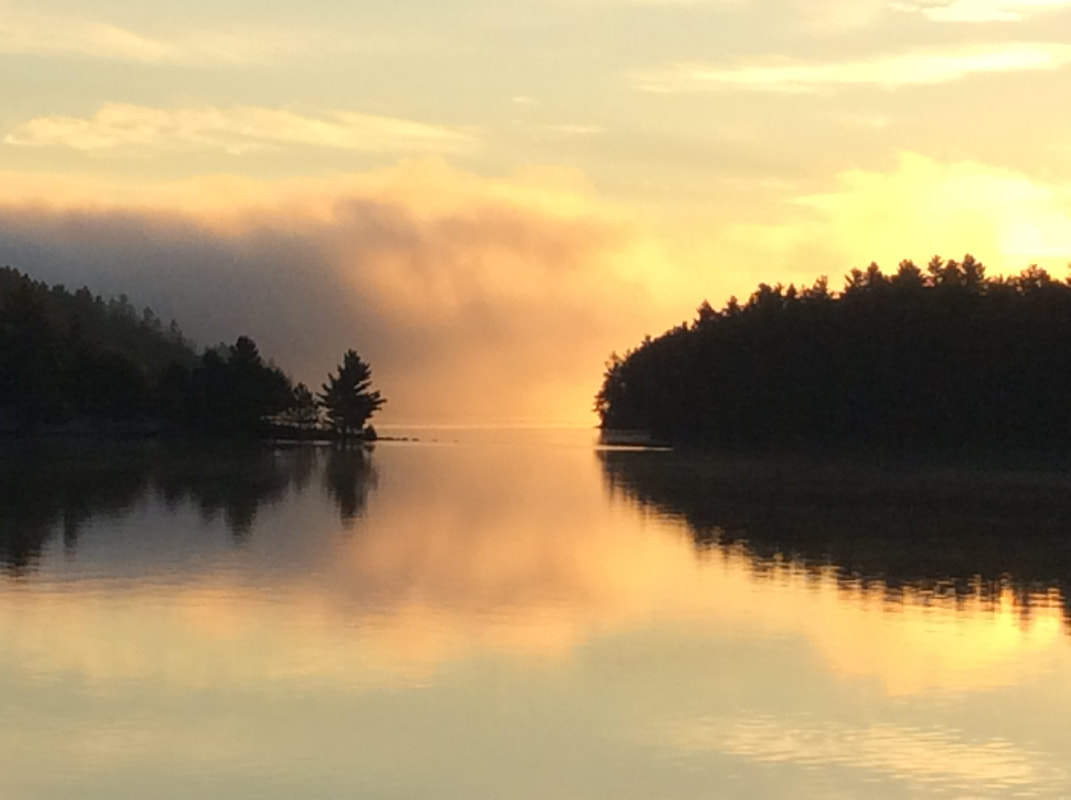
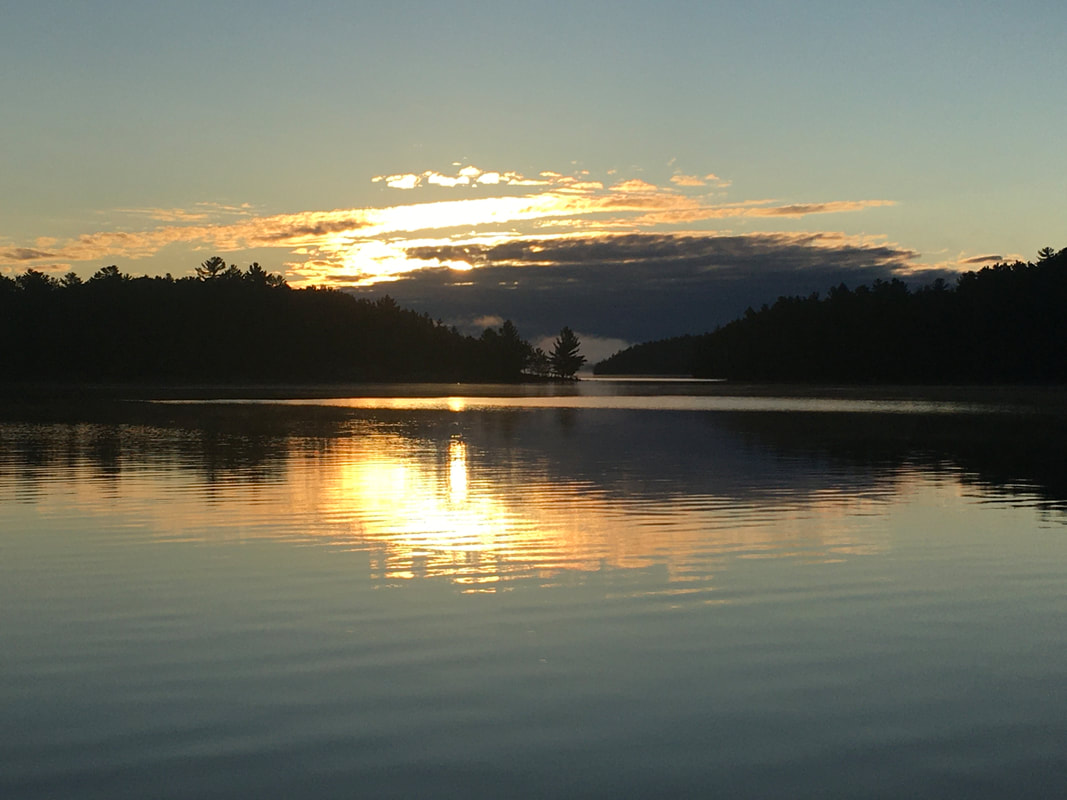
 RSS Feed
RSS Feed
